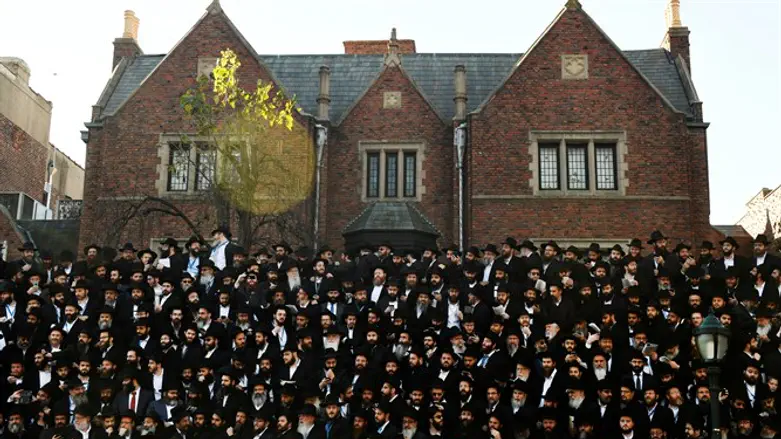
The Alter Rebbe goes on to explain that it was our forefather Jacob whose entreaties secured an abundance of divine compassion for all Jews, throughout the generations. Even when their misdeeds cast them into exile, they are able through their study of Torah and performance of mitzvot to be raised from this state and become reunited with the Ein Sof.
http://tanyaonline.com/?p=1502
וזהו שאמר הכתוב: וישק יעקב לרחל וישא את קולו ויבך, כי רחל היא כנסת ישראל, מקור כל הנשמות
This is the meaning of the verse:9 “And Jacob kissed Rachel and lifted up his voice and wept.” For Rachel is Knesset Israel, the community of Israel, the fount of all souls; Rachel represents the supernal attribute of Malchut of Atzilut, the source of all Jewish souls.
ויעקב, במדתו העליונה שהיא מדת הרחמים שבאצילות, הוא המעורר רחמים רבים עליה
And Jacob — with his supernal attribute, the attribute of Mercy of Atzilut — is the one who arouses great compassion for her, for Rachel, the source of all Jewish souls.
וישא את קולו: למעלה, למקור הרחמים העליונים
“And he lifted up his voice” — upwards, to the fount of the Higher Mercies, to the source of the Thirteen Divine Attributes of Mercy.
The Thirteen Divine Attributes of Mercy are far loftier than the supernal attribute of Mercy of Atzilut. For the latter is but an attribute of a spiritual world, and is hence bounded, while the Thirteen Divine Attributes of Mercy, transcending all worlds, are boundless. They are the fount of all mercies, including the level called the Mercy of Atzilut.
הנקרא אב הרחמים ומקורם
Indeed, they are called the “Father of Mercies,” and their source;
The supernal attribute of Mercy of Atzilut is known as Av Harachaman (“the Merciful Father”), while the Thirteen Divine Attributes of Mercy are called Av Harachamim (“the Father and source of Mercy”).10 (It is for this reason that on especially propitious occasions, the term Av Harachamim is used in the prayers, rather than Av Harachaman.)
This, then, is the meaning of “And Jacob lifted up...”: Jacob elevates his supernal attribute, the Mercy of Atzilut, to the level of the Mercies of the Thirteen Divine Attributes of Mercy. The verse goes on to say:
ויבך: לעורר ולהמשיך משם רחמים רבים על כל הנשמות, ועל מקור כנסת ישראל
“and he wept” — in order to awaken and draw from there, from the boundless Divine Mercies, abundant compassion upon all the souls and upon the fount of the community of Israel,
להעלותן מגלותן, ולייחדן ביחוד העליון, אור אין סוף ברוך הוא, בבחינת נשיקין
to raise them from their exile11 and to unite them in the Yichud Elyon (Higher Unity) of the light of the blessed Ein Sof, at the level of “kisses”.
Notes:
9. Bereishit 29:11.
10. Likkutei Torah, Devarim 62d. (— Note of the Rebbe).
11. The Rebbe notes that in the glosses of the Tzemach Tzedek to Eichah (p. 23), he cites this text as stating “to raise them from their descent” (rather than “from their exile”). That is to say, through Torah and mitzvot Jewish souls are raised up from their descent.